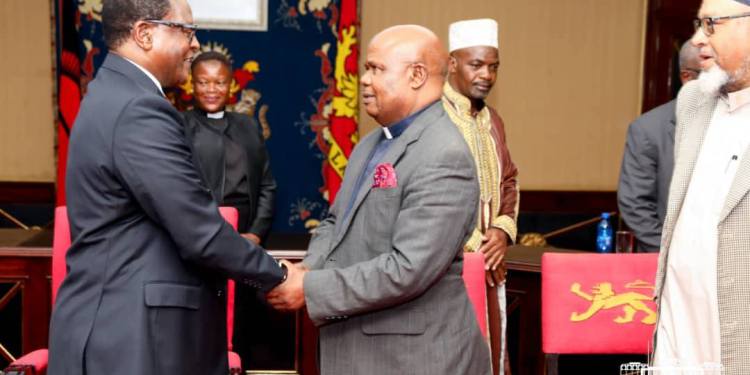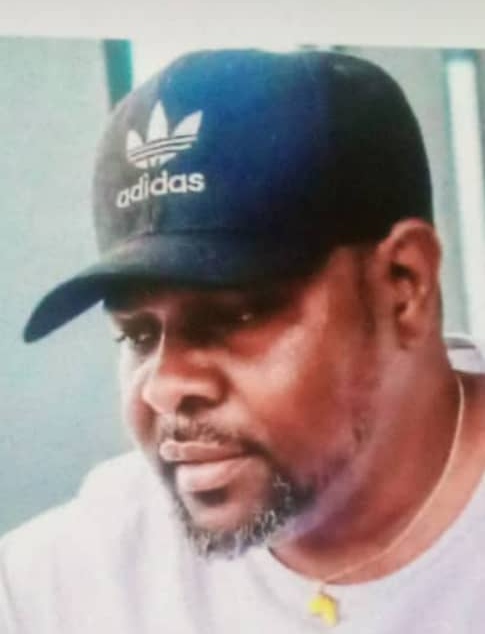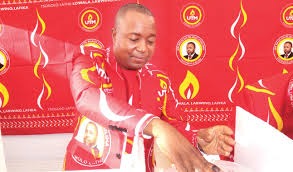By Burnett Munthali
Welcome to the Interview, Rick Dzida
It is an honor to welcome Mr. Rick Dzida, a distinguished social commentator and respected voice in Malawian affairs, to this exclusive interview. With his sharp insights and profound understanding of political and social issues, Mr. Dzida has consistently provided thought-provoking perspectives on matters that shape our nation.
Today, we delve into his views on the recent passing of Vice President Dr. Saulos Chilima and the potential political implications for Malawi. Thank you for joining us, Mr. Dzida. We look forward to your insights.
Questions
1) What are your thoughts on PAC’s criticism of President Chakwera’s alleged inaction and indecisiveness in addressing corruption within his administration?
Rick Dzida (RD) : The Public Affairs Committee’s (PAC) criticism of President Chakwera’s alleged inaction and indecisiveness in addressing corruption within his administration is a pressing concern.
PAC, a quasi-religious group, has expressed that the people’s hopes for Malawi’s future are fading due to the President’s inconsistencies and delayed actions on matters of public importance.
The committee has highlighted several issues, including the administration and management of the economy, the public sector, rule of law, and governance.
They have also called for the President to trim the size of the Cabinet to 15 members and address the delay in devaluing the kwacha, which has worsened the economic situation for many Malawians.
Moreover, PAC has criticized the government for continued corruption and alleged unprocedural and partisan appointments into the public service.
The committee’s chairperson, Monsignor Patrick Thawale, has urged the President to act decisively, stating that “Malawians are crying out there. The poor are starving”.
Overall, PAC’s criticism underscores the need for President Chakwera to address the pressing issues facing Malawi, including corruption, economic management, and governance.
2) Do you believe the president has failed to align his governance with the principles outlined in the MCP manifesto? If so, why?
RD: President Chakwera’s governance has shown both alignment and misalignment with the principles outlined in the Malawi Congress Party (MCP) manifesto.
On one hand, Chakwera has fulfilled some of his campaign promises, such as exceeding his pledge to eliminate PAYE tax on incomes of up to K100,000 by elevating the threshold to K150,000. This move demonstrates his commitment to reducing the tax burden on low-income earners.
On the other hand, critics argue that Chakwera’s administration has not done enough to address corruption, a key promise in the MCP manifesto .
The manifesto emphasizes the importance of corruption-free governance and public administration.
However, some Malawians feel that Chakwera’s government has not made sufficient progress in tackling corruption.
Additionally, the MCP manifesto highlights the importance of servant leadership, unity, and the rule of law .
While Chakwera has made efforts to promote unity and respect for the rule of law, some critics argue that his administration could do more to demonstrate servant leadership, better economic management and accountability.
3) How significant is the disconnect between President Chakwera’s campaign promises and his actions in office for his political legacy?
RD: The disconnect between President Chakwera’s campaign promises and his actions in office is substantial, and it may have significant implications for his political legacy.
During his campaign, Chakwera vowed to rid Malawi of endemic corruption, but his administration has been implicated in corruption scandals, including the mismanagement of COVID-19 response funds.
Chakwera’s failure to fulfill his campaign promises has led to waning public confidence in his administration.
A recent Afrobarometer survey revealed that the ruling party is grappling with declining popularity, while opposition strength is rising. This shift in public opinion may damage Chakwera’s reputation and legacy.
On the other hand, Chakwera has made some progress in promoting gender equality, particularly in cabinet appointments and the Judiciary.
However, his overall performance has been marred by unfulfilled promises, corruption scandals, economic mismanagement and declining public trust.
Ultimately, the significance of the disconnect between Chakwera’s campaign promises and his actions in office will depend on how Malawians perceive his presidency.
If he fails to address the concerns of his citizens and deliver on his promises, his legacy may be tarnished by unfulfilled expectations.
4) PAC described the standard of living in Malawi as “disastrous.” Do you think the government has taken adequate steps to address the rising cost of living?
RD: The rising cost of living in Malawi has indeed reached alarming levels, with the Public Affairs Committee (PAC) describing the standard of living as “disastrous.”
Unfortunately, it seems that the government’s efforts to address this issue have been inadequate.
Key Challenges
The prices of basic commodities like food and fuel have skyrocketed, with cooking oil prices increasing by 204% and petrol prices rising by 126% .
The 25% devaluation of the Malawi Kwacha in May 2022 further exacerbated the rising cost of living.
Despite the rising cost of living, salary increases have been minimal, with most respondents in a survey reporting increases of only 1-10%
Chakwera Government’s Response
While the government has taken some steps to address the rising cost of living, such as increasing the tax-free bracket and reducing VAT on some essential items, these measures have been deemed insufficient by many Malawians.
Civil Society’s Concerns
The Malawi Human Rights Commission has expressed concerns about the government’s handling of the economic crisis, calling for a clear strategy to address the high cost of living and supply chain issues.
5) What impact do you think President Chakwera’s international trips have on public perception, particularly in light of economic hardships faced by Malawians?
RD: President Chakwera’s international trips have likely had a negative impact on public perception, especially considering the economic hardships faced by Malawians.
The trips are perceived as extravagant and unnecessary, sparking widespread criticism.
Many Malawians feel that the president’s travel expenses could be better spent addressing the country’s pressing issues, such as food insecurity and economic stagnation.
The frequency and cost of these trips have raised eyebrows among economic experts and the general public.
For instance, a recent trip to Blantyre, which included the president and the first lady, was seen as an unnecessary expense.
Such perceptions can erode trust in the government and reinforce the notion that leaders are out of touch with the people’s struggles.
Furthermore, the trips are often justified as necessary for securing international support and aid.
However, the benefits of these trips are not always clear, leading to skepticism about their value.
As a result, President Chakwera’s international trips may be seen as a symbol of the government’s misplaced priorities, exacerbating the public’s frustration with the economic situation.
6) Do you agree with PAC’s assessment that corruption scandals in key sectors like the Affordable Inputs Programme and fuel procurement have gone unchecked?
RD: Yes, corruption in providing agricultural input subsidies and fuel procurement is a significant concern in Malawi.
However, both endeavours have been plagued by corruption, inefficiencies, and elite capture, which have undermined its effectiveness.
Unfortunately, Chakwera government has been faulted to be too lenient to deal with the culprits that give the regime a bad name
Key challenges in agricultural input program
Wealthier farmers have been found to benefit more from the subsidies, rather than the intended poor farmers.
Delays in delivering vouchers and inputs have hindered the program’s impact.
Corruption and lack of transparency have led to the misuse of funds and resources.
The subsidies have sometimes displaced commercial input purchases, rather than increasing overall input use.
Key issues in fuel procurement
The fuel procurement process lacks transparency, making it difficult to track the awarding of contracts and the pricing of fuel.
The public and stakeholders have limited access to information on fuel procurement contracts, prices, and suppliers.
There have been allegations of bribery and kickbacks involving government officials, politicians, and fuel suppliers and Chakwera took no action.
Fuel prices have been manipulated, resulting in overpricing and excessive profits for suppliers and middlemen.
The current procurement system is inefficient, leading to delays, shortages, and increased costs.
The fuel market is dominated by a few players, limiting competition and leading to higher prices.
Corruption and inefficiencies in fuel procurement have led to frequent fuel shortages and price volatility.
The corruption and inefficiencies in fuel procurement impose a significant economic burden on Malawians, particularly the poor and vulnerable.
Recommendations
Strengthen procurement laws and regulations
Implement transparent and competitive procurement processes
Increase access to information and promoting public scrutiny
Enhance accountability and anti-corruption measures
.
7) How does the perception of inaction on corruption affect the integrity of the presidency and public trust in government?
RD: The perception of inaction on corruption has significantly eroded the integrity of President Chakwera and public trust in the government.
Many Malawians feel that Chakwera’s administration has not done enough to address corruption, which has been a longstanding issue in the country .
The Public Affairs Committee (PAC) has been vocal about the government’s inaction, stating that the administration is “inactive and indecisive” on corruption.
This perceived inaction has led to widespread dissatisfaction and mistrust among citizens.
People feel that the government is not prioritizing their needs, and this has resulted in increased poverty, hunger, and economic hardship.
The lack of transparency and accountability in government has further exacerbated the situation, creating an atmosphere of distrust and suspicion.
The impact on President Chakwera’s integrity is significant.
His campaign promises to tackle corruption and promote good governance have not been fulfilled, leading to accusations of hypocrisy and lack of commitment to reform .
The perception of inaction on corruption has also damaged the government’s credibility, making it harder for citizens to trust the administration’s policies and decisions.
Ultimately, the perception of inaction on corruption has far-reaching consequences for President Chakwera and the government.
It undermines public trust, erodes the integrity of the administration, and creates an environment of distrust and suspicion.
To regain public trust, the government must take concrete actions to address corruption and promote transparency and accountability
8) PAC stated that Chakwera’s party is on the “exit stage” unless drastic measures are taken. What political strategies would you recommend for the president to regain public trust before the 2025 elections?
RD: To regain public trust, President Chakwera needs to take drastic measures, and fast.
Recommended strategies
Be open and honest about the government’s actions, decisions, and finances. This will help build trust and credibility.
Hold town hall meetings, public forums, and other events where citizens can share their concerns and ideas. This will show that the president values their input and is committed to addressing their needs.
Chakwera’s initial campaign promises focused on governance, infrastructure, and economic development. He needs to show progress on these fronts to regain public trust.
Focus on completing high-impact projects that will improve the lives of Malawians, such as infrastructure development, healthcare, and education.
Chakwera needs to demonstrate his commitment to fighting corruption by taking swift and decisive action against those involved in corrupt practices.
Establish independent bodies to investigate and prosecute corruption cases, and ensure that those found guilty are held accountable.
Chakwera needs to take steps to restore the Malawi Congress Party’s (MCP) integrity and credibility, which have been tarnished by corruption scandals and infighting.
Foster a sense of unity and inclusivity within the party, and ensure that all members feel valued and heard.
By implementing these strategies, President Chakwera can start to rebuild public trust and improve his chances of re-election in 2025
9) How do you interpret PAC’s claim that even in Chakwera’s strongholds, doubts about his reelection chances are growing? What does this signify for his political future?
RD: PAC’s claim that doubts about President Chakwera’s re-election chances are growing, even in his strongholds, is a significant indicator of his waning popularity.
This suggests that Chakwera’s base is no longer solidly behind him, which could be a major challenge for his re-election bid.
The growing doubts about Chakwera’s leadership are likely fuelled by various factors, including:
Malawians are facing significant economic hardships, including rising prices and limited job opportunities.
Chakwera’s administration has been criticized for its handling of corruption cases, which has eroded public trust.
The government’s response to various challenges, including the COVID-19 pandemic, has been criticized for being slow and ineffective.
These factors have created an environment where opposition parties can capitalize on Chakwera’s weaknesses and present alternative solutions to the electorate.
If the opposition can unite and present a compelling alternative, they may be able to sway undecided voters and potentially defeat Chakwera in the 2025 elections.
Overall, PAC’s claim signifies that Chakwera’s political future is uncertain and that he faces significant challenges in his bid for re-election.
10) What reforms or immediate actions do you believe are necessary for the Chakwera administration to address PAC’s concerns and stabilize the political and economic environment in Malawi?
RD : To address PAC’s concerns and stabilize the political and economic environment in Malawi, the Chakwera administration needs to take immediate actions and implement key reforms.
Implement concrete strategies to tackle food insecurity, including support for farmers and vulnerable populations.
Shift to a government-to-government model to stabilize chronic fuel shortages, as proposed by President Chakwera.
Invest in initiatives that promote economic growth, job creation, and poverty reduction.
Strengthen institutions and laws to combat corruption, ensuring transparency and accountability in government dealings.
Implement austerity measures and ensure responsible management of public finances.
Empower local governments and communities to participate in decision-making and resource allocation.
Foster dialogue and consensus-building among political parties, civil society, and other stakeholders.
Ensure the protection of human rights, particularly freedom of speech, assembly, and association.
Encourage national unity and reconciliation, addressing historical grievances and promoting social cohesion.
By taking these steps, the Chakwera administration can begin to address PAC’s concerns, stabilize the political and economic environment, and restore public trust
Closing Remarks
Thank you, Mr. Rick Dzida, for sharing your valuable insights and perspectives during this interview. Your thoughts have shed light on critical issues and provided much-needed clarity on the implications of recent events in Malawi.
We deeply appreciate your time and expertise, and we look forward to engaging with you again in the future. Thank you once again, and take care.
RD: Thanks very much for having me in the interview




